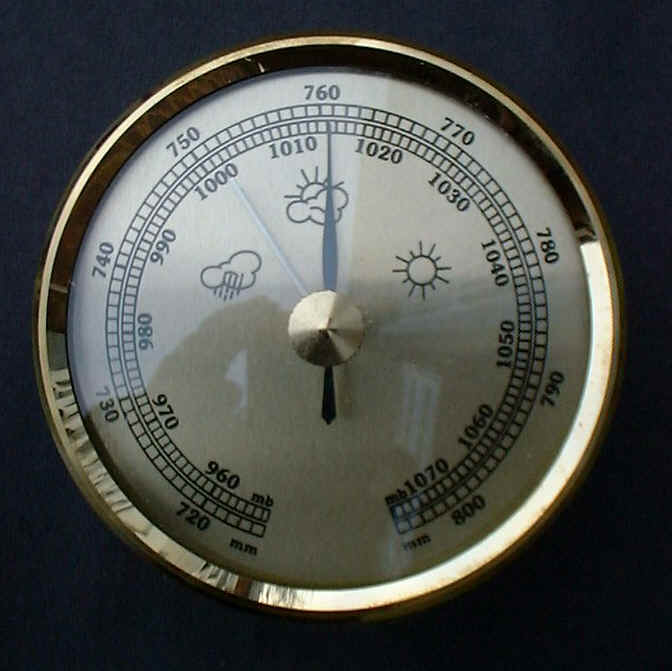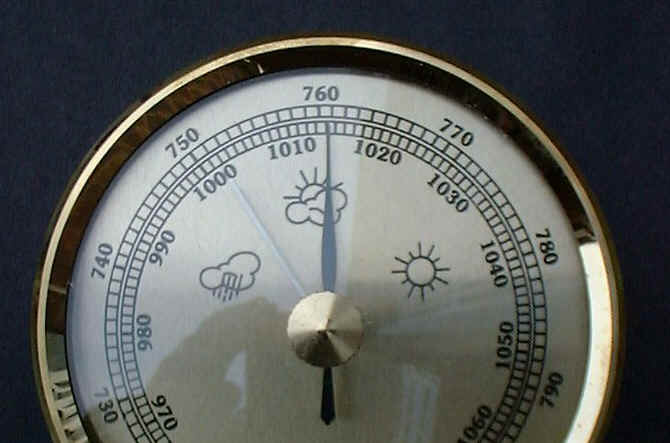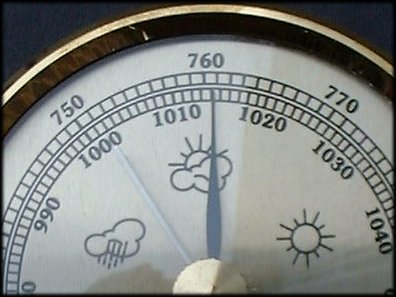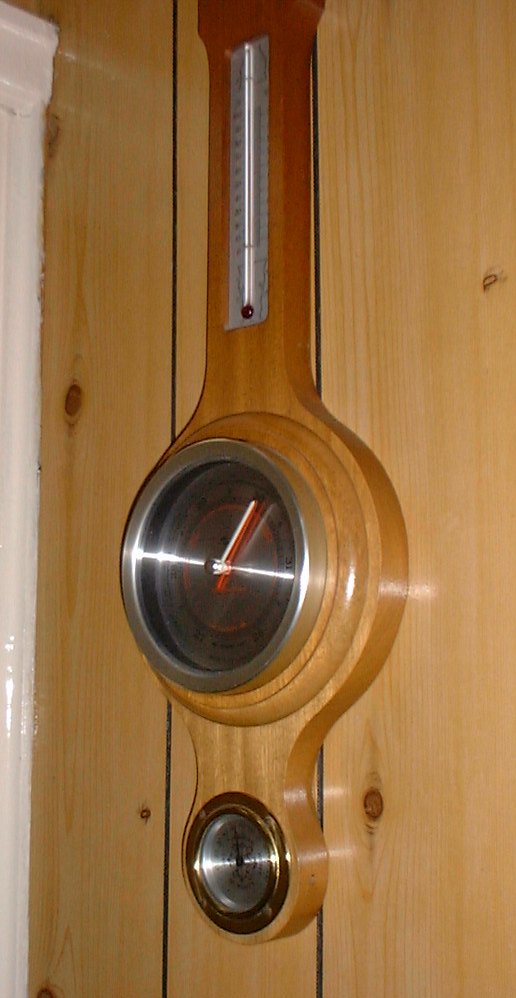Air Pressure
Air Pressure is a very important feature of weather systems. Monitoring its state and its changes gives an insight into what the weather will be like in the near future. Air pressure is the current weight of the air around us. It can be different in different places, and can change. On a weather forecast the air pressure can be shown by black lines called issobars. Weather forecasters often use the words 'high' or 'low' to describe the air pressure.
When you have finished reading about this you may want to return to Collecting Data.
Air PressureAir Pressure |
 |
MillibarsThe scale which weather watchers use is calibrated in millibars (mb) or hectopascals
(hPa). One hPa = one mb. The pressure readings in this country
can range between 950mb and
1050mb.
For the barometer to go to these extremes is unusual. The readings
are more likely to go between 970m.b. and 1030m.b. The brass
knob in the middle controls the short shiny indicator. This
pointer can be moved to align with the indicator. When the
needle then moves, you will be able to see if the pressure
has gone up or down. |
 |
Taking ReadingsOn this barometer the inner scale is the millibar calibration. The outer readings
are in millibars. Tap the barometer gently and note the direction
of movement (up or down). It is the amount of movement in a
short time that indicates the type of weather that is to come.
Take the reading in millibars after tapping the glass. |
 |
Rising or Falling?Generally the speed of change is of interest. If the instrument shows a sudden
fall in air pressure then it is likely that the weather will
be stormy. If the instrument remains constantly high, then
it indicates little change, especially in the summer. |
 |